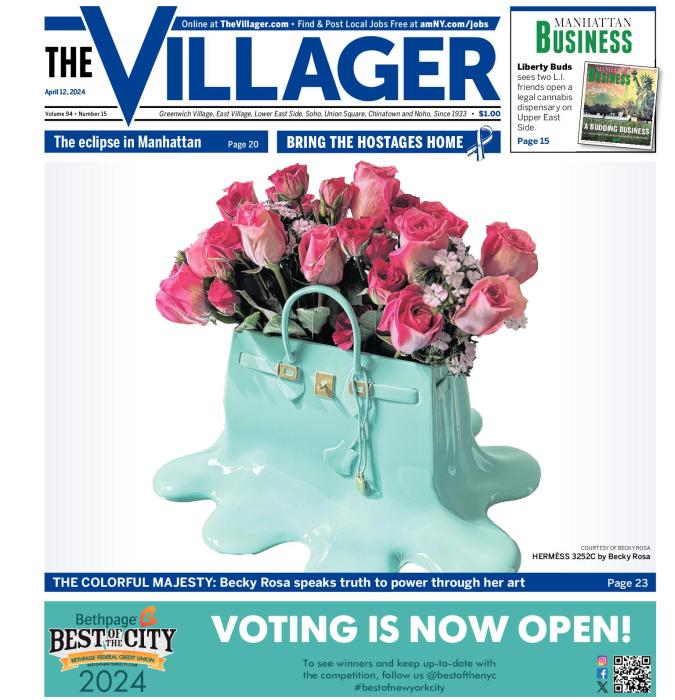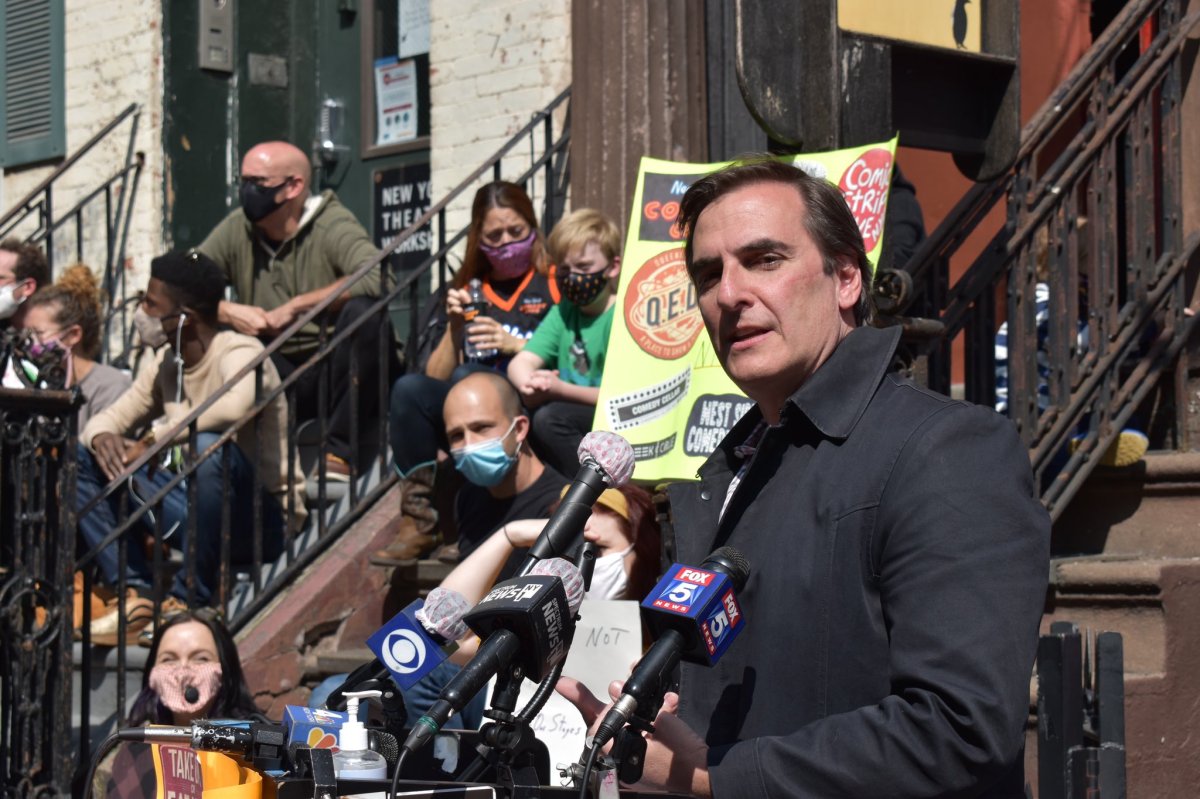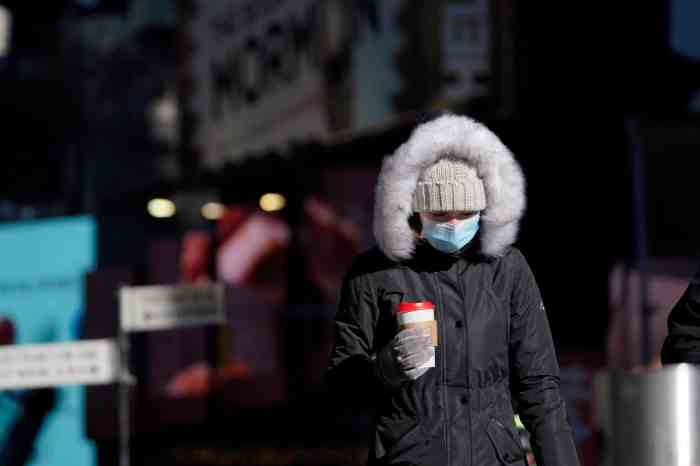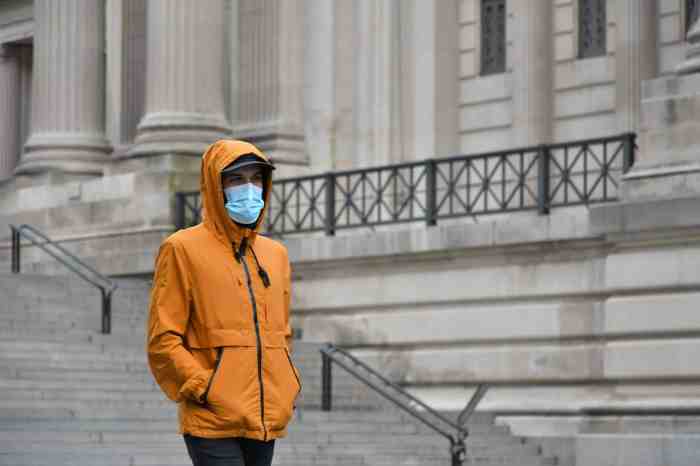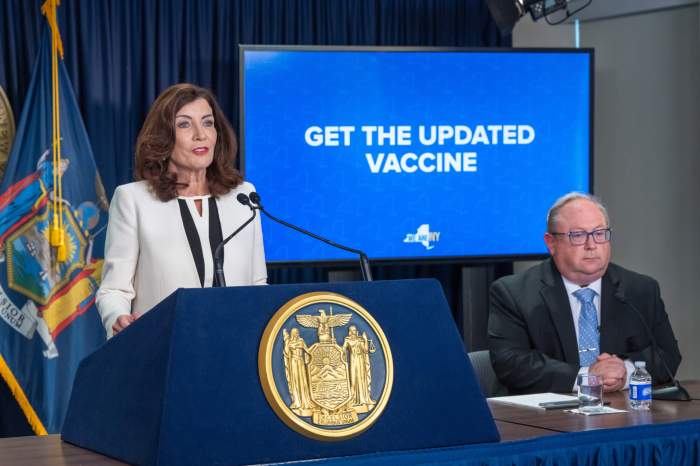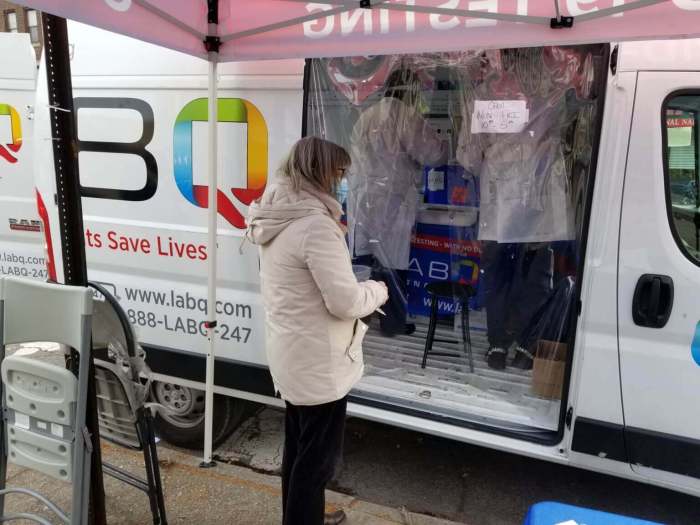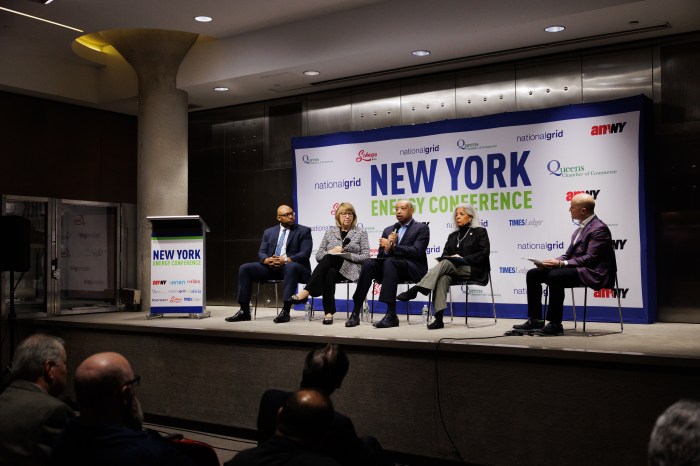Laughter might be the best medicine, but the many comedy clubs in New York City that dispense it have been shut down for months throughout the COVID-19 pandemic.
The clubs have been closed to the public since March, when the first major capacity restrictions took effect as the virus took hold of New York. But as other venues have reopened at limited capacity — including gyms and bowling alleys — the comedy venues remain shuttered.
Club owners, performers and workers are all stumped about the continued closure — and at a Tuesday rally outside the New York Comedy Club in the East Village, they called on Governor Andrew Cuomo to give them answers, and a way forward.
Calling themselves the New York Comedy Coalition, the consortium launched the #SaveNYComedy campaign and touted a detailed plan they recently presented to Cuomo’s officials, outlining various measures they believe will allow them to safely reopen at partial capacity. Members of the coalition also talked about the struggles they continue to endure as the microphones and clubs remain silent.
“This is serious business, we are desperate here,” Kambri Crews, owner of the QED club in Astoria, Queens, said at the start of the conference.
Crews and others in attendance expressed frustration that comedy clubs and other performance venues across New York have been kept closed while other businesses are working to recover from the pandemic.
“For over six months, there’s been no rent relief and no plan for us to reopen,” Crews said. “These inconsistent and often illogical regulations have let venue owners like myself and our staff twisting in the wind.”
When she’s appealed to government officials for help, she noted, they all “point to one person, and that is Governor Cuomo.”
“We’re here to talk to the supervisor,” Crews said. “We’re demanding to speak to our supervisor.”
Emilio Sabon, owner of New York Comedy Club, reported the many financial struggles he and other comedy club owners, staff members and comedians themselves have faced since the clubs shut down in March.
Most workers are on unemployment insurance at the present time, according to Sabon. He’s helped comedians who frequented the stage find other means of employment themselves. The club’s bank account is depleted, and Sabon says he’s doing his best trying to “stretch out whatever loans we received.”
“How can we pay our staff when we’re not allowed to be open?” he said.
The coalition’s plans to reopen comedy clubs would permit indoor venues to open at 25% of their maximum occupancy to patrons with food and beverage service. Any venue that does not offer food or drink would be able to open up to 50% listed capacity.
Outdoor comedy venues will be able to have as many available seats as possible within the allotted area, provided tables are situated six feet apart from each other.
All guests, indoor and outdoor, would be separated by at least six feet from each other. Patrons won’t be allowed to mill about the venue in large groups.
The venues will urge visitors to buy tickets in advanced online, and will maintain socially distanced lines outside the venue to get in. The performance spaces will also allot additional time between shows for proper cleaning and disinfection.
All stage performers will be required to provide at least 10 feet of space between themselves or their audiences, or six feet if a plexiglass barrier is erected between the stage and audience.
Queens state Senator Michael Gianaris said that it’s been weeks since the Governor’s office met with the consortium of club owners, and they’ve yet to receive an answer or a logical explanation as to why the clubs remain shut down.
“No one can explain to me why comedy clubs have to be treated differently than other venues across the city,” Gianaris said. “We should be partnering with the small businesses to help them survive and get back on their feet, not putting obstacles in their path.”
Two comedians also lent their support to the reopening cause, including Ophira Eisenberg. She told the press that she had performed at outdoor comedy venues where management and staff went through great lengths to protect the performers and audience — and that New York City clubs could do the same.
“We need some clarification as to why we couldn’t start introducing some stand-up shows in a venue that’s properly cared for,” Eisenberg said. “The club owners are putting themselves at risk so they want to create an environment that thrives, brings us all back together and is safe for everybody.”
Christian Finnegan said that despite the continued ban on comedy clubs and other performance venues in New York, “there are comedy shows going on tonight” in homes and backyards.
“The only thing is that they’re not being done safely,” he said. “They figured out a road map for every other industry, I don’t understand why comedy wasn’t included.”
When reached for comment, Richard Azzopardi, senior advisor to the governor, said the following: “If there is any time when a laugh is needed, it’s now. We’ve been talking to the industry and other stakeholders and it’s our hope we’ll be able to put together guidance where these performances can resume in a way that also keeps New Yorkers safe.”
